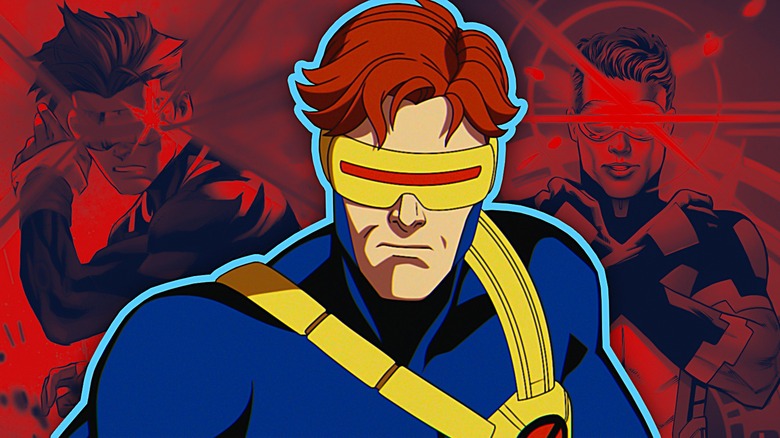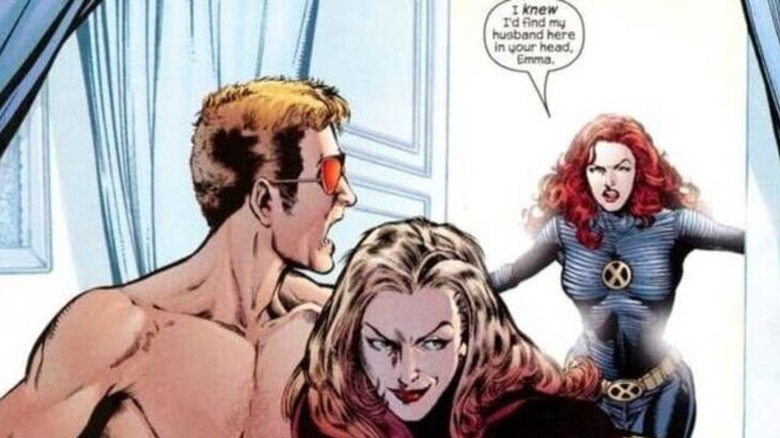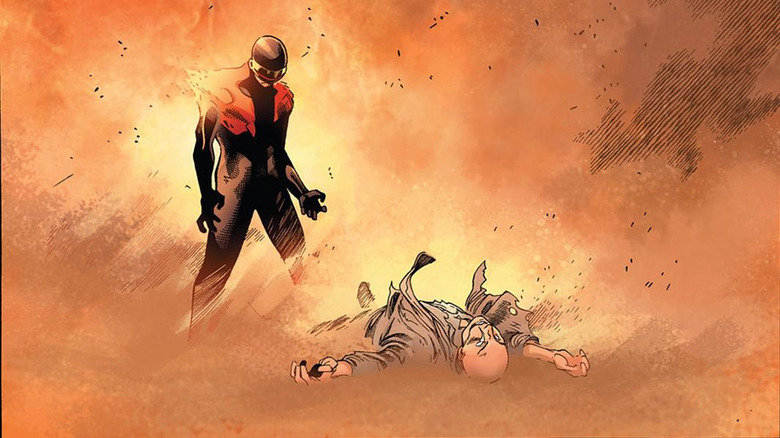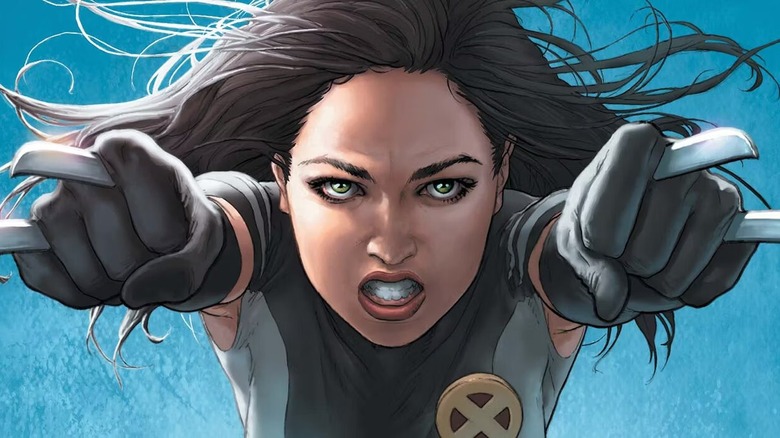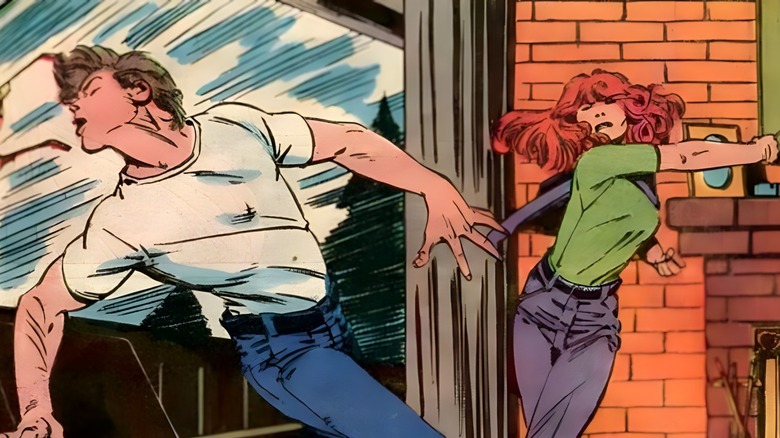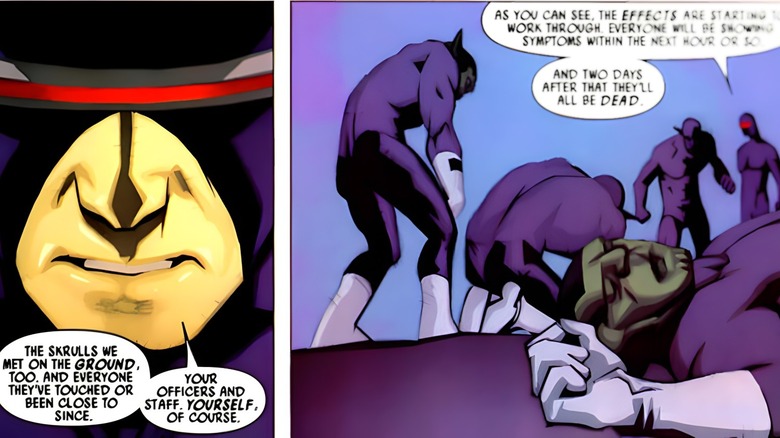X-Men: 5 Things Cyclops Did To Make Us Hate Him (And Why We Were Wrong)
Scott Summers, aka Cyclops, is a punching bag in comic book circles. His haters argue that he's a selfish, uptight rapscallion who sleeps around and displays authoritarian tendencies. Some naysayers even argue that Cyclops is a cop, which, in internet circles, means a law-abiding square who's perpetually uncool. That isn't the case for Cyclops, though, as he's often behaved in ways that would make real cops reach for their handcuffs to arrest him.
Of course, some of the criticisms against this polarizing mutant are valid. He's certainly no angel, and that's putting it mildly. That said, Cyclops' entire backstory is complex, and some of his most loathable actions have understandable motivations behind them.
Cyclops has operated in the moral grey zone from time to time, but that's what makes him such a fascinating character. So, let's try to understand where he's coming from during his more ill-conceived moments before we lambast the guy any further.
Cyclops' affair with Emma Frost is caused by a toxic relationship
Some "X-Men" fans can't forgive Scott Summers for cheating on Jean Grey with Emma Frost, but it isn't adultery in the traditional sense. It begins with them having a telepathic erotic relationship, which, in mutant circles, is akin to sending naughty text messages behind your partner's back. There's no excuse for this type of behavior, but Scott and Jean's relationship sees both parties act unfaithfully.
Scott and Emma link up after Jean makes out with Wolverine in Grant Morrison's "New X-Men" #17, and the smooching session would have probably escalated to the bedroom if the latter hadn't walked away while proclaiming that a relationship between them would never work. Scott is wrong to have an emotional affair, for sure, but his wife did play tonsil tennis with another dude beforehand.
Neither Scott nor Jean are true baddies in this situation. Their relationship is toxic, and neither party is happy, so they seek comfort and connection with other mutants. This is why it's important to end joyless romances before things fester and everyone gets hurt. Admittedly, it does get awkward when Scott starts fantasizing about Jean after she dies and he settles down with Emma (who can still read his mind). But grief does strange things to people.
Cyclops becomes an extremist in response to Scarlet Witch
Cyclops is a student of Professor Charles Xavier, who, broadly speaking, promotes compassionate values and believes in a future where mutants and humans can co-exist. Cyclops loses sight of his mentor's vision during Ed Brisson's "Uncanny X-Men" run, which sees him become a militaristic extremist after Scarlet Witch decimates most of the mutant population.
Ultimately, Cyclops turns his followers into killers instead of teaching them the values instilled in him by Professor X. This leads to in-fighting between the X-Men and a showdown between the mutants and the Avengers, especially when Cyclops allows the Phoenix Force to come to Earth hoping that it will revitalize the mutant population. It does, but it comes at the expense of Cyclops' sanity and killing his mentor (it's worth noting that he is more or less possessed at the time).
The Phoenix Force's arrival causes some headaches, and Cyclops' totalitarian tendencies go against the X-Men's core values. At the same time, his actions are a response to Scarlet Witch eradicating most of his people, and he gets his own hands dirty only because he feels it is for the greater good. Desperate times call for desperate measures. Interestingly, Marvel reportedly has an "X-Men vs. Avengers" movie in the works, so it's not implausible to imagine this storyline coming to the big screen at some point.
Cyclops is happy to let younger mutants do his dirty work
Cyclops' militaristic phase doesn't just involve him going to war with the Avengers and offing his mentor. He also recruits child soldiers and mercenaries to do his bidding, and this doesn't go down well with some folks.
The most notable example of Cyclops being problematic is when he encourages Idle to assassinate some Hellfire Club agents in Jason Aaron and Daniel Acuna's "X-Men Schism" #3. While Cyclops doesn't tell her to kill anyone per se, he does instruct her to do what must be done to survive, leaving her with no other options. Encouraging a teenager to commit atrocities is questionable; at the same time, Idle is in a sticky situation and her actions save her life — even if it is at the cost of her innocence.
Elsewhere, Craig Kyle and Christopher Yost's "X-Force" series sees Cyclops enlist X-23 to do his dirty work when she's assigned to his shady black ops X-Force squad. This team is tasked with carrying out dodgy missions, but bringing Wolverine's daughter into the mix is a no-go in the eyes of the hairy hero. Then again, it's not like X-23 hasn't been exposed to action in the past, and she is brought in to preserve the survival of all mutants.
Cyclops' relationship with Madelyne Pryor was a lie from the start
Cyclops' track record with women is downright terrible, and his relationship with Madelyne Pryor is probably his worst outing as a romantic partner. After getting married far too quickly, they have a son called Nathan and get ready to live happily ever after. But this is Cyclops we're talking about, so the good times don't last long, and he leaves his family to lead the X-Men. He eventually returns home, and they give him a second chance, but it all goes pear-shaped when Jean Grey comes back from the dead and old sparks are rekindled.
Scott abandoning his wife and child for his resurrected lover is lousy behavior, and he probably shouldn't have hooked up with Madelyne in the first place since he only did it because she looked like Jean. However, part of Cyclops' marital restlessness stems from his desire to be a superhero again. There are several moments throughout "Uncanny X-Men" when he and Madelyne don't see eye-to-eye, which is partly caused by his inherent sense of duty to his mutant comrades. Scott was raised to be a warrior, after all, and lifelong habits don't fade away overnight.
Of course, Scott leaving his wife for his resurrected lover is reprehensible on paper, but it's more complicated than that. We later find out that Madelyne is Jean's clone, so the relationship was built on deception from the get-go. Scott shouldn't be absolved of any wrongdoing, but it isn't a clear-cut case of him being a homewrecking scoundrel like some narratives would have you believe.
That time Cyclops unleashed the Legacy Virus
Unless he's entangled in love triangles, Cyclops' worst behavior pertains to his desire to achieve the greater good, even if his methods are a little unhinged at times. This is especially apparent when he uses the Legacy Virus to take out some Skrulls during the "Secret Invasion" storyline, knowing full well what type of damage it could cause.
In some ways, Cyclops doesn't really have a choice in this scenario. The Skrull forces are too strong to defeat through other means, and this is the most effective way to cut their numbers. Still, he previously saw how the Legacy Virus almost destroyed all mutants, so the fact he is willing to risk wiping out the entire Skrull population to stop a few bad eggs shows that there's nothing he won't do to save his people.
It's easy to judge Cyclops for acting like an inhumane monster here, but extreme circumstances drive him to it. Besides, he doesn't actually take out an entire population; he uses it against a legion of hostile Skrulls and lets them know that he'll take it further if he has to. That's called compromising.
